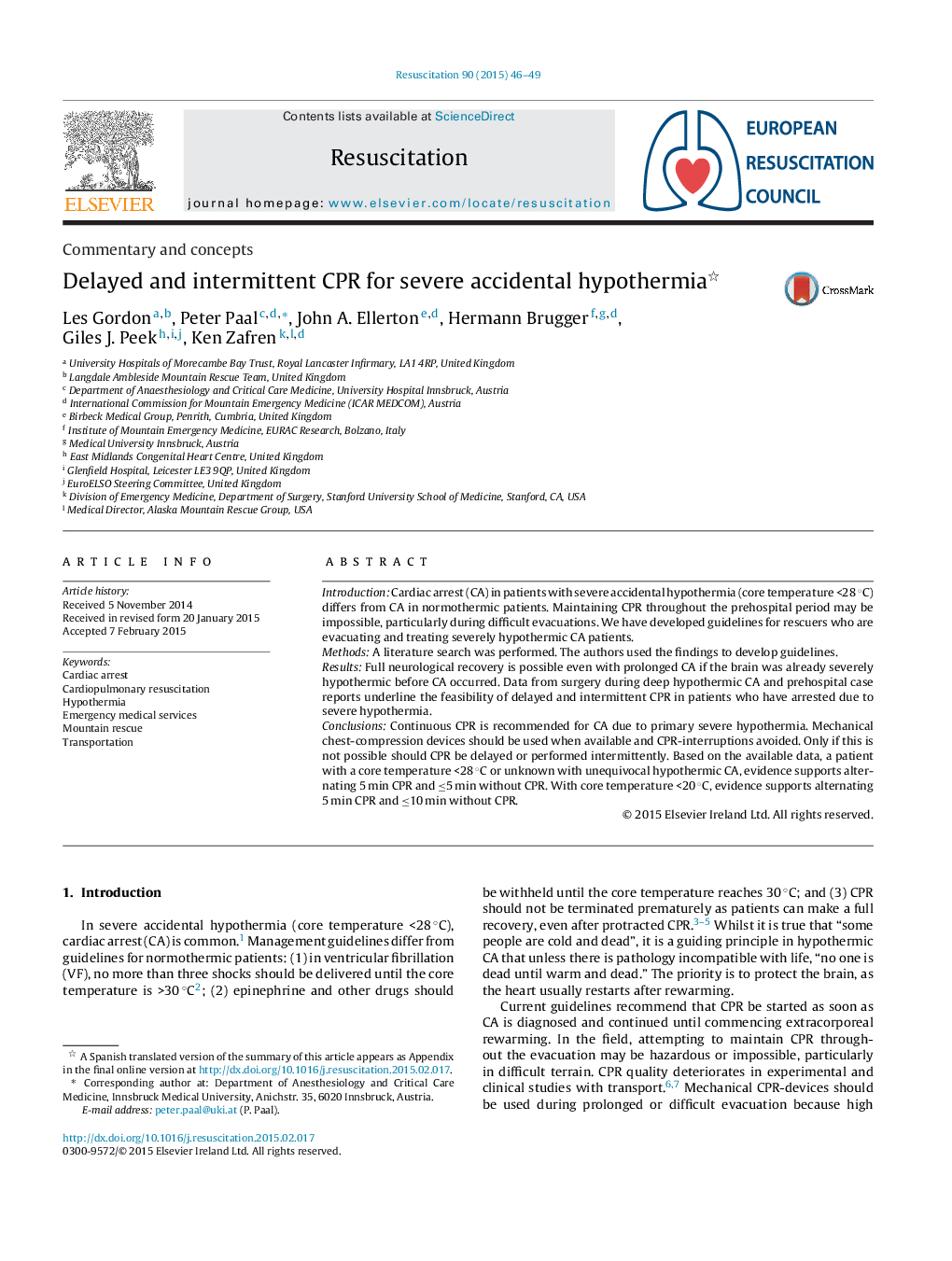| Article ID | Journal | Published Year | Pages | File Type |
|---|---|---|---|---|
| 3007930 | Resuscitation | 2015 | 4 Pages |
IntroductionCardiac arrest (CA) in patients with severe accidental hypothermia (core temperature <28 °C) differs from CA in normothermic patients. Maintaining CPR throughout the prehospital period may be impossible, particularly during difficult evacuations. We have developed guidelines for rescuers who are evacuating and treating severely hypothermic CA patients.MethodsA literature search was performed. The authors used the findings to develop guidelines.ResultsFull neurological recovery is possible even with prolonged CA if the brain was already severely hypothermic before CA occurred. Data from surgery during deep hypothermic CA and prehospital case reports underline the feasibility of delayed and intermittent CPR in patients who have arrested due to severe hypothermia.ConclusionsContinuous CPR is recommended for CA due to primary severe hypothermia. Mechanical chest-compression devices should be used when available and CPR-interruptions avoided. Only if this is not possible should CPR be delayed or performed intermittently. Based on the available data, a patient with a core temperature <28 °C or unknown with unequivocal hypothermic CA, evidence supports alternating 5 min CPR and ≤5 min without CPR. With core temperature <20 °C, evidence supports alternating 5 min CPR and ≤10 min without CPR.
